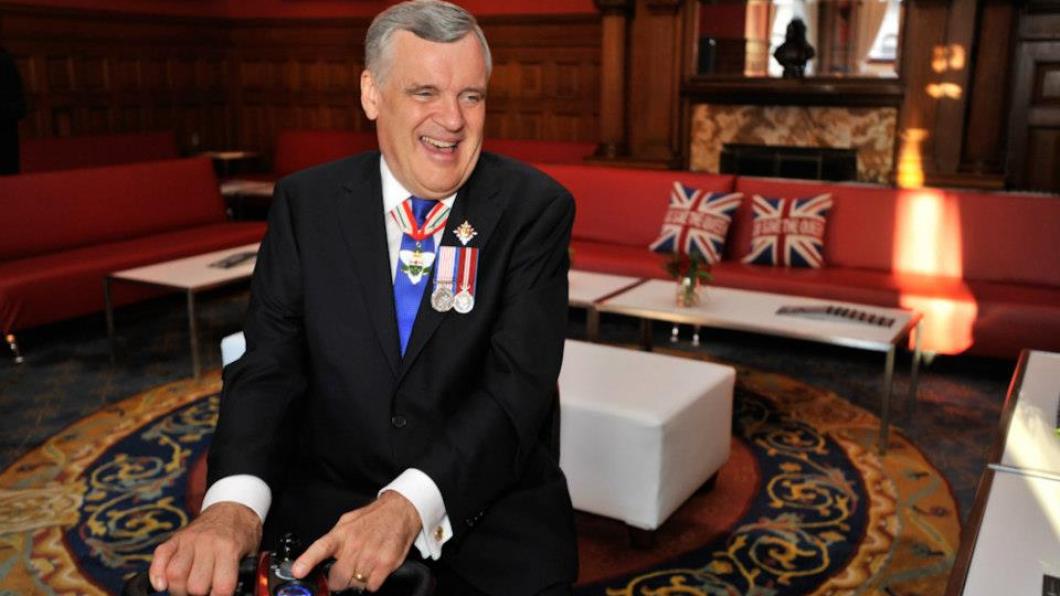
David Onley, who championed an accessible Ontario, has died
By Louise Kinross
David Onley was a huge force for disability rights in Ontario, first as a journalist for CityTV and then as lieutenant-governor of the province from 2007 to 2014. "Accessibility is a human right, and accessibility is right," he said as part of a social media campaign in 2013. David, who had polio as a child and used a motorized scooter, died this weekend.
In 2019 he reviewed the Accessibility for Ontarians with Disabilities Act after extensive consultations in communities across the province. The 2005 law promised to make Ontario fully accessible by 2025, but his detailed report described it as "mostly inaccessible."
Dr. Tom Chau, a senior scientist at Holland Bloorview and former director of our research institute, recalled hearing David speak at an Accessibility Showcase at MaRS about 10 years ago.
"I remember him boldly asserting that the economic problem in Ontario is not a workforce shortage, but a shortage of willpower to employ people with disabilities," Tom says in an e-mail. "What struck me most, though, was what he said at the beginning of his talk. As the stage didn't have a ramp (ironic given the event was about accessibility), he got out of his scooter near the stairs and with the assistance of his aid and the handrail, he awkwardly ascended and made his way to the podium.
"He then told the audience that he didn't want us to remember him as a mighty lieutenant-governor or a well-known journalist, but as a man who needed help getting up three steps. His humility was so powerful. This led the audience to recognize that we simply can't ignore disability, and lack of accessibility impacts people in very real ways."
David was a great supporter of Holland Bloorview. He visited our integrated kindergarten class and attended a Bloorview Research Institute symposium. He will be deeply missed.
Like this story? Sign up for our monthly BLOOM e-letter. You'll get family stories and expert advice on parenting children with disabilities; interviews with activists, clinicians and researchers; and disability news.